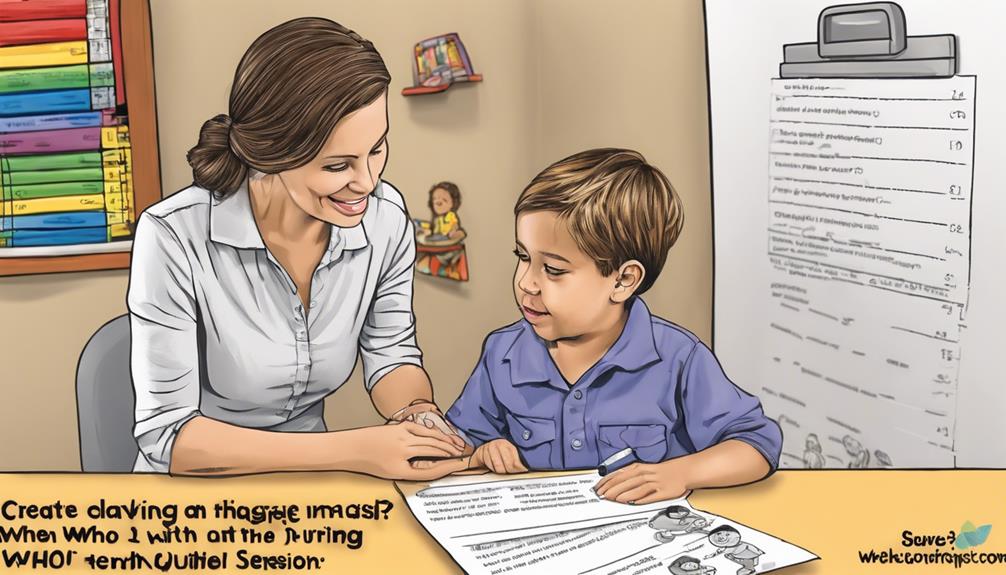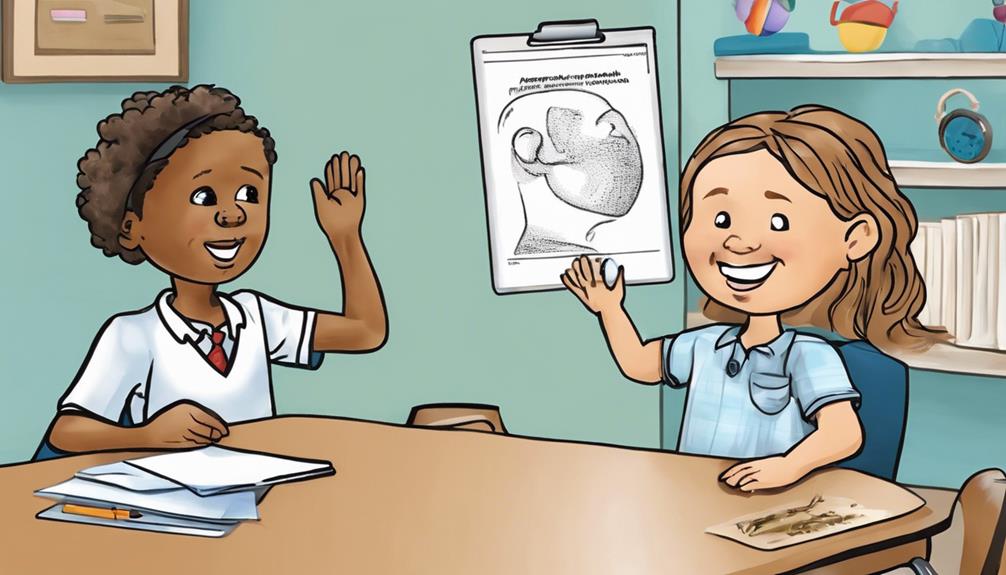When starting the process of enrolling in Auditory Verbal Therapy Certification Programs, it’s like embarking on a voyage into the unknown. The appeal of becoming an expert in this specific field and creating a significant difference is undeniable.
However, the process of navigating the requirements and finding the right program can feel daunting. Understanding the intricate steps and nuances involved in securing your spot in a certification program is crucial.
By unraveling the layers of eligibility criteria, program selection, and professional support, we shed light on the path ahead, guiding you towards a fulfilling career in Auditory Verbal Therapy.
Key Takeaways
- Choose accredited programs like LSLS Cert AVT or Auditory Verbal UK for comprehensive training.
- Meet eligibility criteria such as degree in related field, post-graduate study hours, and supervised therapy experience.
- Ensure program alignment with your career goals, curriculum structure, and support for practical training.
- Follow LSLS certification process including supervised therapy hours, mentorship, and AVT-related activities.
Auditory Verbal Therapy Certification Overview
Auditory Verbal Therapy certification programs equip professionals with the skills needed to develop listening and spoken language abilities in children with hearing loss. To become an Auditory Verbal Therapist, one must obtain LSLS Cert AVT, which demands a minimum of 700 supervised therapy hours and 150 AVT-related activity hours. LSLS Cert AVTs collaborate with LSLS-certified mentors for three years and typically have a background in audiology, speech therapy, or teaching the deaf. Organizations like Auditory Verbal UK offer comprehensive training for those pursuing LSLS Cert AVT certification, including 80 hours of post-graduate study and clinical supervision.
Becoming an Auditory Verbal Therapist provides a unique opportunity to work closely with deaf children, supporting their language development. The demand for professionals trained in Auditory Verbal Therapy is on the rise, especially in regions like Europe, Africa, and Asia. By obtaining LSLS Cert AVT, individuals can make a significant impact on the lives of children with hearing loss, helping them thrive in a world of spoken language (LSL).
Benefits of AVT Certification

Obtaining AVT certification provides professionals with specialized training essential for fostering listening and spoken language skills in deaf children. This certification equips individuals with the knowledge and techniques needed to help children develop these crucial abilities.
LSLS Cert AVT certification, recognized globally, allows professionals to work on an international scale, meeting the increasing demand for Auditory Verbal Therapists in regions like Europe, Africa, and Asia.
By becoming an Auditory Verbal Therapist, one plays a pivotal role in building parents' confidence in their child's language development journey. Moreover, qualifying as an LSLS Cert AVT in the UK enables professionals to offer Auditory Verbal therapy locally, further expanding the reach of this specialized service.
The certification not only benefits professionals by enhancing their skills but also serves as a testament to their dedication to improving the lives of deaf children through listening and spoken language.
Eligibility Criteria
Meeting the eligibility criteria for Auditory Verbal Therapy certification programs requires candidates to possess a degree in audiology, speech therapy, or teaching the deaf. Additionally, candidates must complete 80 hours of post-graduate study in Listening and Spoken Language to qualify for enrollment.
It's essential for candidates to have a minimum of 700 clocked hours of supervised therapy and work with an LSLS-certified mentor for three years. Moreover, mandatory completion of 150 hours in AVT-related activities is necessary. These requirements ensure that Auditory Verbal Therapists are well-equipped to provide effective therapy to individuals with hearing impairments.
Choosing a Certification Program

When selecting a certification program for Auditory Verbal Therapy, it's crucial to consider the accreditation requirements set by the AG Bell Academy for international recognition.
We should also look for programs that offer flexible online training options to accommodate professionals' busy schedules.
Additionally, assessing the curriculum structure, training duration options, and support for supervised therapy hours are key factors to consider in choosing the right certification program.
Program Accreditation Requirements
To ensure the highest standards in Auditory Verbal Therapy certification programs, prospective candidates should prioritize seeking programs accredited by the AG Bell Academy for Listening and Spoken Language. Accreditation by the AG Bell Academy ensures that the program meets rigorous standards set forth by experts in the field. It guarantees that the curriculum aligns with the principles of Auditory Verbal Therapy and provides the necessary training for individuals to become certified professionals.
Additionally, accredited programs mandate supervised therapy hours, giving candidates practical experience under the guidance of LSLS-certified professionals. This crucial component ensures that individuals are well-prepared to work effectively with clients in real-world settings. Therefore, choosing an accredited program is essential for those seeking a successful career in Auditory Verbal Therapy.
Curriculum Structure Overview
Exploring various Auditory Verbal Therapy certification programs reveals distinct curriculum structures focusing on key principles, techniques, and strategies crucial for effective listening and spoken language development. Programs typically cover coaching families, guiding professionals, and delivering Auditory-Verbal Therapy services.
Modules may include content on developmental milestones in children with hearing loss, early literacy development, and fostering age-appropriate listening skills. Emphasis is placed on creating a supportive home environment for language development in children with hearing loss.
Choosing a program accredited by recognized bodies like the AG Bell Academy ensures quality training and preparation for certification exams. Evaluating the curriculum structure is essential in selecting a program that aligns with your goals of becoming a proficient Auditory Verbal therapist.
Training Duration Options
After understanding the curriculum structure of Auditory Verbal Therapy certification programs, it's crucial to evaluate the training duration options available to professionals seeking certification in this specialized field. These programs typically offer training durations ranging from 2.5 years for Foundation level training to 3 years for Advanced level training.
The Foundation level training focuses on preparing professionals for the LSLS Cert AVT examination, while the Advanced level training enhances skills in auditory-verbal practice. Both options provide coursework, clinical supervision, and mentoring necessary for becoming a certified Auditory Verbal Therapist.
Additionally, the LSLS Cert AVT certification process mandates specific training duration requirements to ensure professionals are proficient in supporting children with hearing loss in developing spoken language skills through listening.
Auditory Verbal UK Enrollment Process

Upon accessing Auditory Verbal UK's website, professionals interested in LSLS Cert AVT certification can initiate their enrollment process by completing the online application. Here are some key steps to guide you through the enrollment process:
- Submit your application online through the Auditory Verbal UK website.
- Access clinical supervision and mentoring to support you during your training.
- Explore funding options and bursaries that may be available to assist with course attendance.
- Upon successful completion of the training, you'll be prepared to apply for the LSLS Cert AVT examination.
- Stay connected with Auditory Verbal UK for updates on enrollment deadlines and upcoming training opportunities.
LSLS Certification Requirements
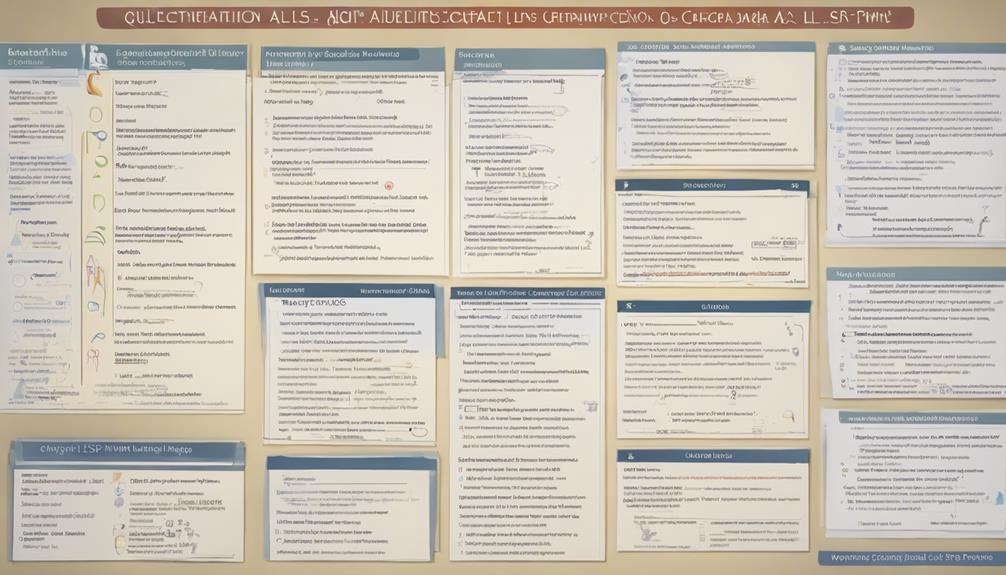
LSLS certification mandates a minimum of 80 hours of post-graduate study in Listening and Spoken Language for qualifying candidates with a degree in audiology, speech therapy, or as a Teacher of the Deaf.
Additionally, candidates must complete 700 clocked hours of supervised therapy and engage with a mentor for three years. To fulfill the requirements, a minimum of 150 hours in Auditory-Verbal Therapy (AVT)-related activities is necessary.
Structured observation, live guided observations, and hands-on experience are integral parts of the certification process. These components ensure that LSLS-certified professionals have the practical skills and knowledge to effectively work with individuals who are deaf or hard of hearing.
Meeting these rigorous standards not only demonstrates a commitment to excellence but also equips individuals with the expertise needed to make a meaningful impact in the lives of those they serve.
LSLS Application Steps

Before proceeding with the LSLS application steps, professionals must submit their enrollment application to the LSL Registry for approval by the AG Bell Academy.
To ensure a smooth application process for LSLS certification, individuals should follow these steps:
- Familiarize yourself with the eligibility requirements set by the LSL Registry.
- Gather all necessary documentation to support your application.
- Identify a suitable mentor to guide you through the certification process.
- Submit your enrollment application to the LSL Registry for approval.
- Await confirmation of your eligibility to pursue LSLS certification.
LSLS Registry Enrollment

When considering LSLS Registry enrollment, it's crucial to meet the specific eligibility criteria set by the AG Bell Academy. This step ensures that documentation sharing and mentor identification are completed accurately before proceeding.
Enrollment in the Registry acts as a verification of eligibility for the certification process.
Eligibility Requirements
Prospective professionals seeking certification in Auditory Verbal Therapy must first complete the enrollment process in the LSLS Registry for verification of eligibility. To meet the certification requirements, several eligibility criteria must be satisfied, including:
- Submitting an enrollment application to the LSLS Registry.
- Ensuring all specific eligibility requirements are met.
- Waiting for approval from the AG Bell Academy.
- Providing necessary documentation for verification purposes.
- Identifying a mentor to guide you through the certification process.
Enrolling in the LSLS Registry is a crucial initial step that confirms eligibility for pursuing certification in Auditory Verbal Therapy. This process sets the foundation for your journey towards becoming a certified professional in this field.
Application Process
Initiating the enrollment process in the LSLS Registry marks the essential starting point for professionals aspiring to pursue certification in Auditory Verbal Therapy. Before commencing the certification process, individuals must meet specific eligibility requirements set by the AG Bell Academy.
The approval of the enrollment application is determined by the Academy, emphasizing the importance of thorough documentation sharing and the identification of a mentor. Enrolling in the LSLS Registry is crucial as it allows for the verification of eligibility status for the certification process.
Professionals should ensure they fulfill all necessary criteria and submit a comprehensive application to begin their journey towards becoming certified in Auditory Verbal Therapy.
LSLS Certification Exam Preparation

Preparing for the LSLS Certification Exam is a crucial step towards becoming a Certified Auditory Verbal Therapist. To excel in the exam, consider the following key preparation tips:
- Utilize resources from AG Bell Academy: The Academy offers valuable reading materials and practice exams to aid in your preparation.
- Familiarize yourself with the LSLS Certification Exam format: Understanding the structure of the exam can help you navigate it more effectively.
- Document your certification process in the LSL Registry: Ensure all necessary steps are completed before requesting to take the LSLS Certification Exam.
- Dedicate time to consistent study: Establish a study schedule that allows you to cover all relevant topics in preparation for the exam.
- Seek guidance from experienced professionals: Mentors in the field can provide valuable insights and advice to help you prepare effectively.
Learn AVT Course Details
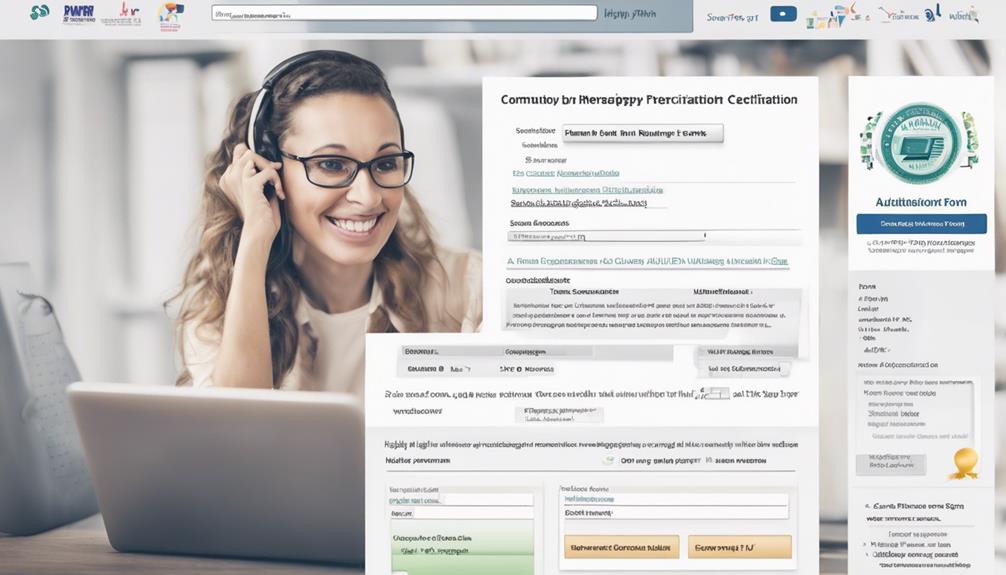
The online training course, Learn AVT, provides professionals working with families of babies and young children with hearing loss an opportunity to develop essential listening, learning, and spoken language skills necessary for LSLS Certification. Learn AVT, founded by Shefali Shah, emphasizes practical training to meet the growing need for support in families of children with hearing loss. The course offers 61 recorded video presentations, virtual discussions, over 250 clinical practice video clips, and supervised practicum sessions. Approved by the AG Bell Academy for Listening and Spoken Language, Learn AVT awards 44 LSLS CEUs. The next course is set to commence in July 2024.
| Course Features | Details |
|---|---|
| Video Presentations | 61 recorded sessions |
| Virtual Discussions | Interactive sessions for engagement |
| Clinical Practice Clips | Over 250 videos to observe |
| Supervised Practicum Sessions | Hands-on training with guidance |
| LSLS CEUs | 44 credits towards certification |
Testimonials and Reviews

Participants in the Auditory Verbal Practice course laud the partnership and expertise provided, emphasizing its value in improving outcomes post-cochlear implantation. The course organization and resources are highlighted as key strengths by participants. The value of the course in improving Listening and Spoken Language outcomes post-cochlear implantation is emphasized. Participants recommend the course design for its effectiveness in enhancing auditory skill development. Positive feedback is given on the course structure and resources provided for engaging professionals in Auditory-Verbal practice.
- Partnership and expertise praised
- Course organization and resources highlighted
- Value in improving Listening and Spoken Language outcomes
- Effectiveness in enhancing auditory skill development
- Positive feedback on course structure and resources
These testimonials and reviews showcase the effectiveness of the Auditory Verbal Practice course offered by the Bell Academy for Listening in training professionals to become Certified LSLS specialists.
Professional Support Resources
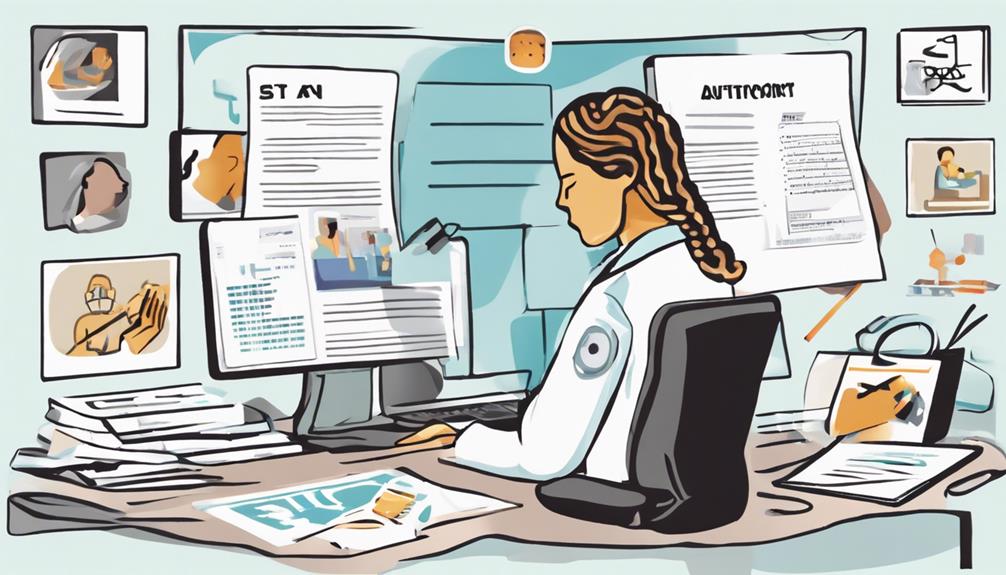
To effectively support individuals seeking auditory-verbal therapy, collaboration with certified professionals such as Listening and Spoken Language Specialists (LSLSTM) is essential for tailored guidance. These professionals, including LSLS Certified Auditory-Verbal Educators (LSLS Cert. AVEd) and LSLS Certified Auditory-Verbal Therapists (LSLS Cert. AVT), offer valuable coaching for families navigating auditory verbal therapy. Developing listening and spoken language skills in children is a core focus of these experts, emphasizing the crucial role parents play as primary language teachers. Additionally, collaborating with teachers of the deaf, speech-language pathologists, and audiologists can provide specialized assistance in enhancing auditory-verbal development. By leveraging the expertise of these professionals, individuals can receive comprehensive support in honing their auditory-verbal skills.
| Support Resource | Description |
|---|---|
| LSLS Certified Auditory-Verbal Educators | Provide coaching and guidance for families implementing auditory-verbal therapy approaches. |
| LSLS Certified Auditory-Verbal Therapists | Offer specialized therapy services to help children develop listening and spoken language skills. |
| Parents | Crucial as primary language teachers, they are instrumental in supporting a child's language growth. |
| Collaborating Professionals | Teachers of the deaf, speech-language pathologists, and audiologists bring specialized expertise. |
Auditory-Verbal Practice Course Format
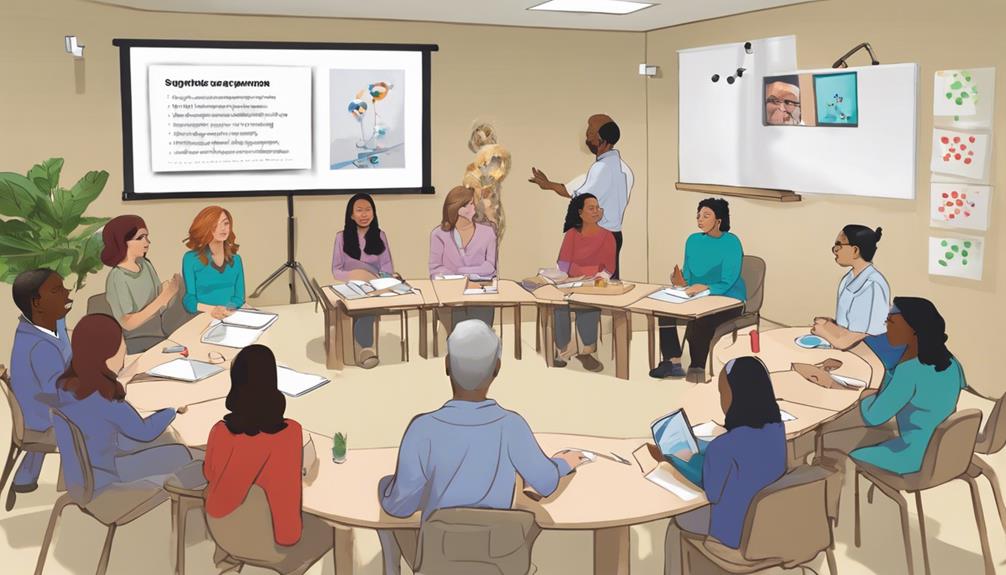
The Auditory-Verbal Practice course format includes 11 weekly modules delivered online through Open LMS.
This format offers participants the flexibility to access pre-recorded lectures lasting 60 minutes each.
Supplemental readings are recommended to deepen understanding in auditory-verbal practice.
Additionally, weekly live web classes are designed to highlight key concepts, encourage case discussions, and foster engagement among participants.
Course Delivery Methods
Engaging in the Auditory-Verbal Practice course involves navigating through 11 weekly modules on Open LMS, utilizing pre-recorded lectures, and participating in live web classes to enhance understanding and promote active learning.
- Interactive discussion boards foster networking and sharing insights.
- Access to 60-minute pre-recorded lectures offers flexibility for participants.
- Weekly live web classes emphasize key points and encourage active engagement.
- Supplemental suggested readings aid in knowledge retention and comprehension.
- Case discussions during web classes enhance practical application of concepts.
Through this comprehensive online format, participants gain a deep understanding of auditory-verbal practices for early intervention with deaf individuals, honing their skills in speech and language development.
Instructional Material Options
Exploring various instructional material options within the Auditory-Verbal Practice course format yields diverse learning opportunities for participants.
The course includes 11 weekly modules on Open LMS for online didactic training, offering access to 60-minute pre-recorded lectures for convenience. Supplemental suggested readings are provided to enhance understanding, while discussion boards facilitate networking and interaction with peers.
Weekly live web classes emphasize key points and enable practical case discussions. These materials are crucial for participants to grasp essential concepts related to spoken language outcomes, cochlear implants, and supporting families of babies with hearing impairments effectively.
Tuition and Financial Considerations

Considering the range of tuition costs, potential discounts, and financial aid options available, individuals interested in Auditory Verbal Therapy certification programs should carefully assess their financial circumstances before enrolling. Here are some key financial considerations to keep in mind:
- Tuition for programs can vary from $400 to $500, along with a 3% payment processing fee.
- Early registration discounts are offered until February 1, 2024, providing an opportunity for reduced tuition costs.
- Financial assistance such as bursaries or funding options may be available to support course attendance.
- Specific payment details and application links will be provided upon acceptance into the certification programs.
Professionals seeking further skill enhancement in Auditory Verbal Therapy can explore related courses and additional training opportunities.
Frequently Asked Questions
How Do I Get AVT Certified?
To get AVT certified, we need to complete post-graduate study hours in Listening and Spoken Language, typically 80 hours.
Gain a minimum of 700 clocked hours of supervised therapy under an LSLS-certified mentor.
Work with the mentor for three years to meet the experience criteria for certification.
Fulfill all mandatory AVT-related activities, totaling 150 hours, to become AVT certified.
This process ensures a thorough understanding and practical experience in Auditory Verbal Therapy.
How Do I Become LSL Certified?
Becoming LSL certified is a journey filled with dedication and milestones. Meeting AG Bell Academy's eligibility requirements is just the beginning.
Enrolling in the LSL Registry kickstarts the process. Working closely with a certified LSL Specialist is a must.
Documenting your progress and acing the LSLS Certification Exam are pivotal steps. Once you pass, a certification award can be requested, with your certificate arriving within two to four weeks.
What Are the Prerequisites for Avt?
To qualify for Auditory Verbal Therapy certification, a degree in audiology, speech therapy, or being a Teacher of the Deaf is necessary. Completion of 80 hours of post-graduate study in Listening and Spoken Language is mandatory. Candidates must have at least 700 clocked hours of supervised therapy and work with an LSLS-certified mentor for three years.
Additionally, 150 hours in AVT-related activities need completion before enrolling in Auditory Verbal Therapy certification programs.
What Is the Difference Between Speech Therapy and Auditory Verbal Therapy?
When comparing speech therapy and auditory verbal therapy, it's important to note that auditory verbal therapy focuses on developing spoken language skills through listening for children with hearing loss.
In contrast, speech therapy addresses a broader range of communication disorders beyond hearing loss, employing techniques like articulation exercises and language interventions.
Auditory verbal therapy specifically targets optimizing listening and spoken language abilities in children with hearing loss, emphasizing auditory stimulation and language development through listening activities.
How Can Enrolling in Auditory Verbal Therapy Certification Programs Help Individuals with Hearing Loss?
Enrolling in auditory verbal therapy for hearing certification programs can greatly benefit individuals with hearing loss. These programs provide specialized training to professionals, enabling them to develop skills to help individuals with hearing impairments improve their communication and language development. This can significantly enhance the quality of life for those with hearing challenges.
Conclusion
In conclusion, enrolling in Auditory Verbal Therapy Certification Programs can be a challenging but rewarding journey. While the requirements may seem daunting, the benefits of becoming certified in AVT far outweigh any obstacles.
So, let's not let fear of the unknown hold us back from making a difference in the lives of individuals with hearing loss. Let's take the first step towards becoming a certified AVT professional and transforming lives through sound.



